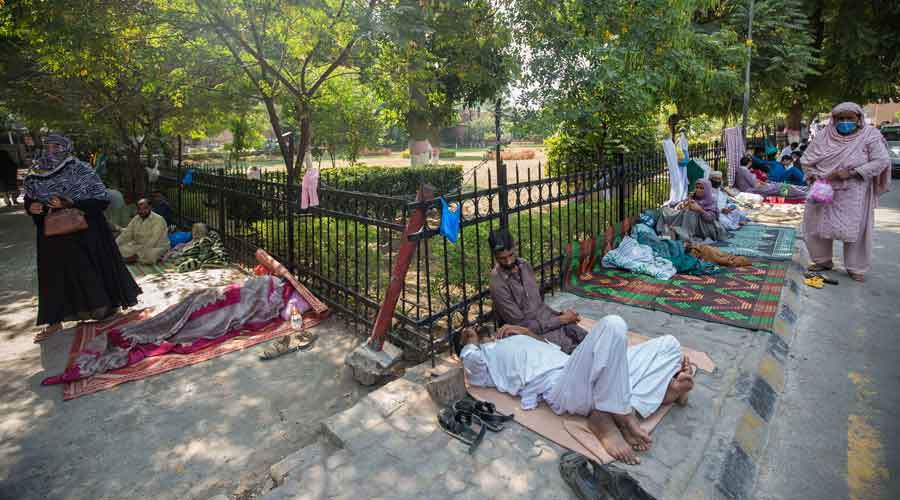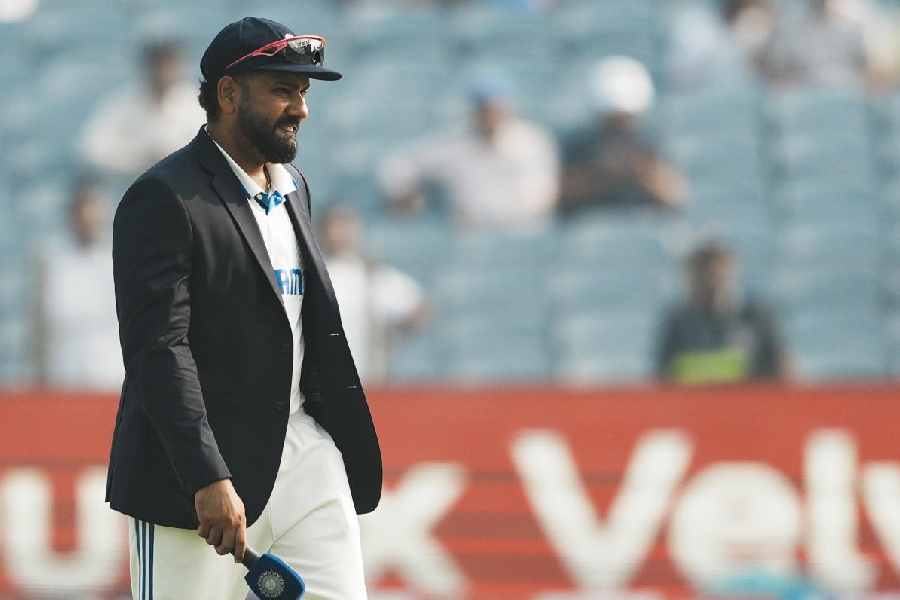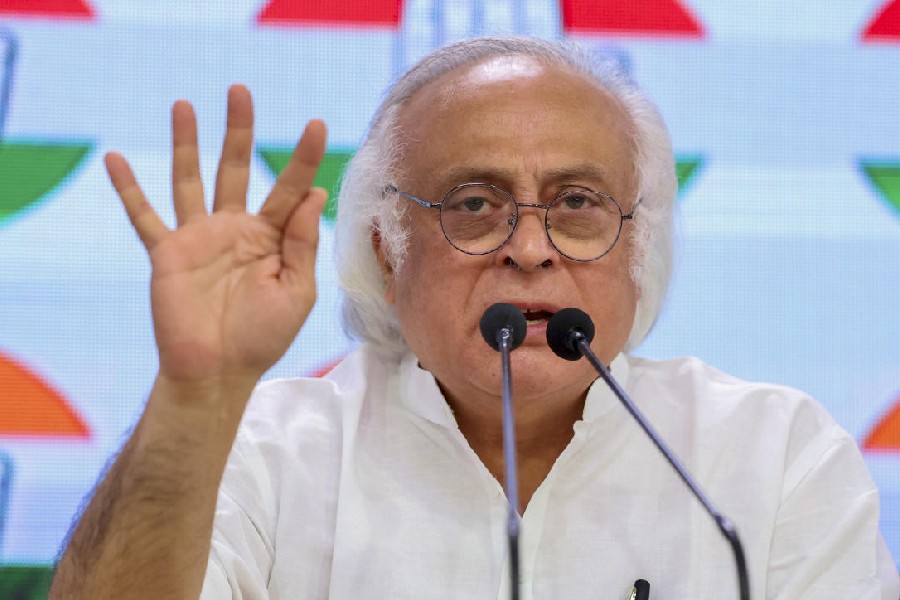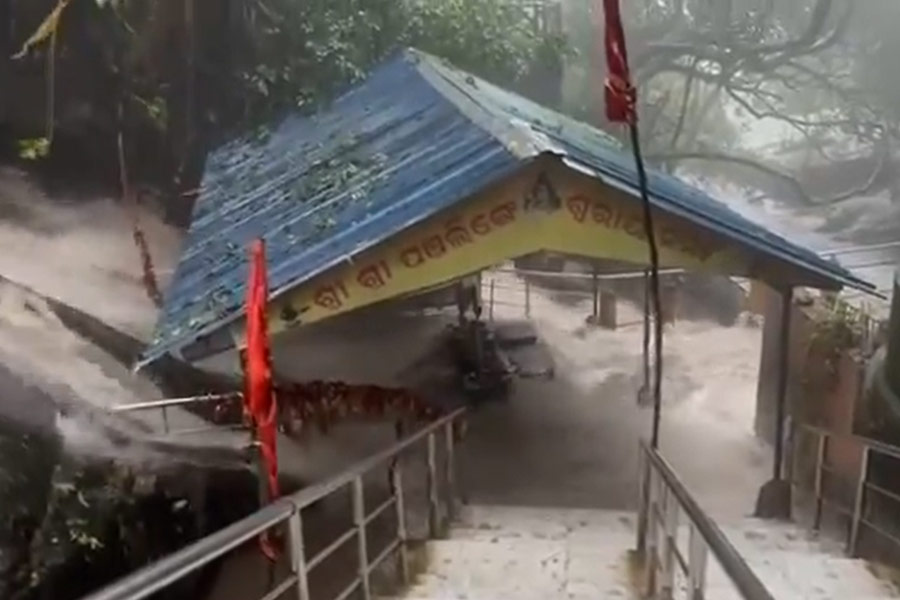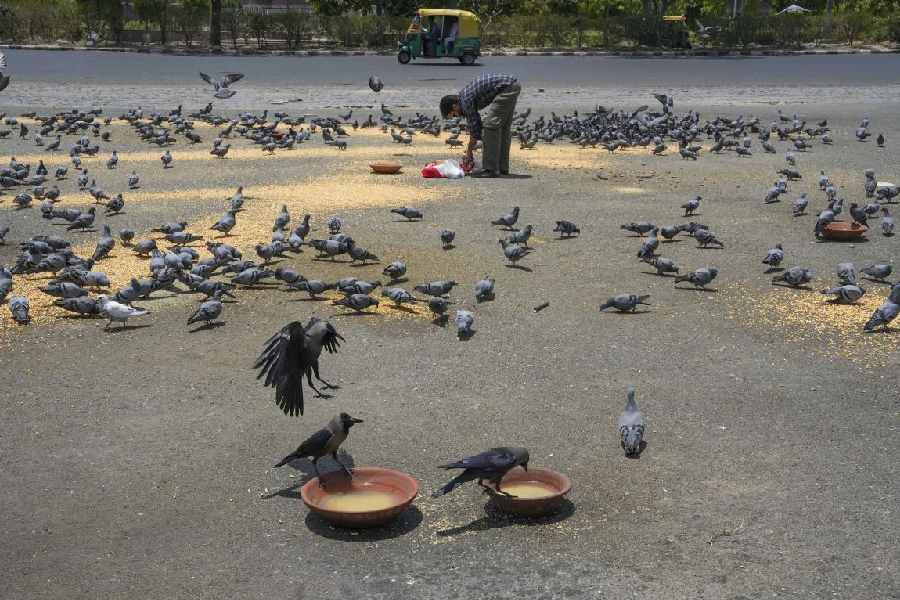Iqbal Shaheen, a taxi driver, drove his sick father to this city’s three main hospitals. All of their intensive care beds and ventilators were occupied.
Shaheen was told there might be room at a private hospital, for $625 a day, far above what his earnings of $10 a day could cover. He took his father home to die.
“The poor cannot afford to be sick,” Shaheen said. “Without political connections, a coronavirus patient cannot get admitted at a public hospital, while paying a private hospital’s bills is unthinkable.”
As winter sets in, cold weather, pollution and public apathy to the coronavirus are weighing heavily on Pakistan’s limited health care system.
Pakistan’s Covid-19 positivity rate has rocketed up to about 7.7 per cent of tests administered in recent weeks from only 2 per cent in October, prompting a plea from health experts and doctors in Karachi for the government to impose a strict nationwide lockdown.
Prime Minister Imran Khan has closed schools but has ruled out a second lockdown, saying it would decimate the economy.
“We don’t want to lead people to death due to hunger, while saving them from coronavirus,” Khan told journalists in November.
By official figures, Pakistan is weathering the coronavirus better than the US, Europe and India. Total infections have reached 448,522, according to researchers at Johns Hopkins University using official figures, and more than 9,000 people have died.
Still, cases are surging, and limited testing compared with other countries suggests the virus could be racing through the country at an even higher rate. Health experts cite ineffective government limits on personal contact and widespread doubts, often fueled by conspiracy theories, that Covid-19 poses a threat.
Pakistan was also lulled into a false sense of security. A widely predicted rise in infections over the summer failed to show up in official numbers. Government restrictions on travel or the overall youth and resilience of Pakistan’s population may have contributed.
“Pakistanis remained safe during the first wave and didn’t face a serious situation like seen in other countries, mainly because of God’s special blessings,” said Dr Qaiser Sajjad, a leader of the Pakistan Medical Association.
The second wave is proving more lethal. Some hospitals are turning away patients. In Dr Ruth Pfau Civil Hospital in Karachi, managers are scrambling for beds.
“The government seems to have failed to enforce health guidelines,” Dr Sajjad said.
At the Holy Family Hospital in the city of Rawalpindi, virus wards that had been nearly empty are beginning to fill. Now, about a quarter of the 120-bed facility has been taken up, said Dr Akhtar Mehmood, the hospital’s coronavirus coordinator.
New York Times News Service

